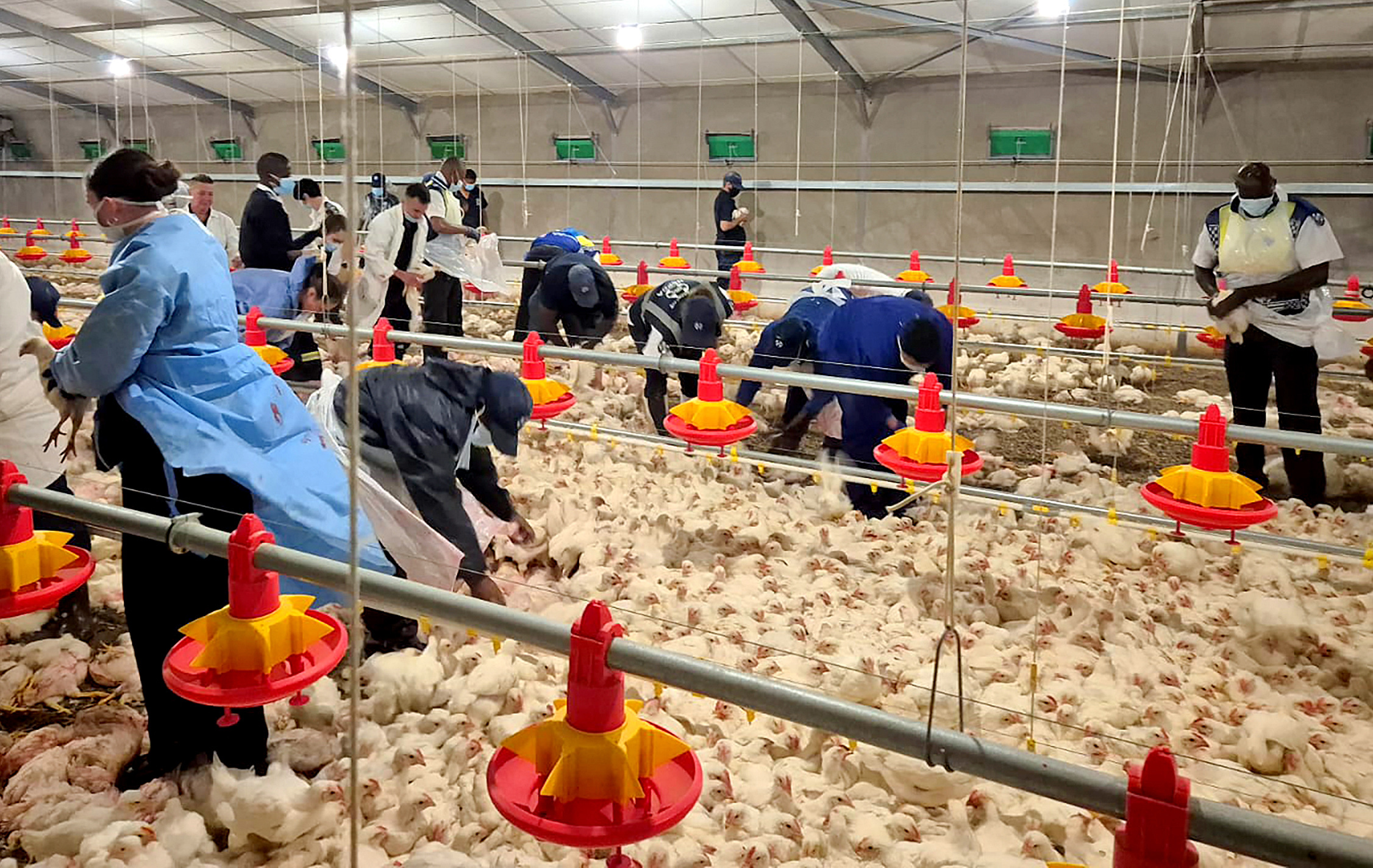On Monday, 20 May, the Public Investment Corporation (PIC) confirmed its support for the Daybreak Foods board’s decision to enter business rescue, describing the process as “the best path to preserve the company’s value and potential, saving approximately 3,000 jobs”.
Read more: Inside Daybreak — hunger, silence, bullets and betrayal at Delmas chicken farms
With the company’s finances resembling a henhouse after a fox visit, the PIC’s R74-million cash injection is meant to keep the lights (and incubators) on while a business rescue practitioner is appointed to hatch a credible turnaround plan.
Despite a flurry of official statements, a reconstituted board and the promise of business rescue, hope remains scarce on the factory floor at Daybreak Foods. Thousands of workers, partially paid for April, say this development has done little to lift their spirits.
Read more: Feathers fly at Daybreak Foods – whistle-blower points finger at compliance chiefs
One anonymous worker told Daily Maverick, “We don’t have hope now. Our hope for Daybreak Foods is diminished.”
They added that they had received only half of their basic April salary and nothing for their overtime. The worker said the company had not communicated anything about these delays, leaving employees in the dark. They are now awaiting their May salary, which is expected to be paid on Friday, 23 May, since the usual payday of the 25th falls on a Sunday.
Another employee echoed this sentiment, saying, “Things are very bad there. They are not being fully transparent with us, and there is no direct communication, so we do not have hope.”
The employee said workers simply wanted the truth — no matter how grim — so they can understand the company’s current position and know whether they have a future with it.
The PIC, which holds the dual distinction of being both a major shareholder and creditor, has made it clear that Daybreak must be rescued, not just for the sake of the workers, but to “realise returns for clients and their beneficiaries”.
Meet the new board
Before the feathers hit the fan, the PIC had already reconstituted Daybreak’s board. The new line-up reads like a who’s who of agriculture, finance and — crucially — damage control:
- Dr Cynthia Charlotte Nkuna (retained interim chairperson): A poultry vet with an MBA and a background in biologicals. If anyone can spot a sick chicken — or a sick balance sheet — it’s her.
- Lehlohonolo Andrew Makenete (interim deputy chairperson): Agricultural economist and policy wonk.
- Tshokolo Petrus Nchocho: Development finance veteran, former CEO of the IDC and Land Bank.
- Kgampi Jack Bapela (retained): Agro-processing dealmaker.
- Esethu Ayanda Dazana (retained): Chartered accountant and transformation specialist.
- Brian Luthuli Mavuka (PIC): PIC’s head of finance, because someone needs to keep an eye on the purse.
- Martinus Philipus de Jonge (PIC): Investment executive and former interim CEO of Daybreak — back for another peck at the problem.
The board, together with the PIC, has pledged full cooperation with the business rescue practitioner to implement a “sustainable turnaround strategy.”
Read more: How Daybreak’s chickens came home to roost
How did we get here?
Daybreak Foods’ decline unfolded over several years, marked by mounting financial strain, management instability, and operational breakdowns. Originally part of Afgri, the company was acquired by a PIC-backed BEE consortium in 2015, with high hopes for transformation and growth.
However, by 2017, just two years after the acquisition, Daybreak began facing severe financial difficulties amid increased competition from cheaper imported chicken, governance challenges and operational mismanagement.
The PIC assumed full control in 2017, but despite efforts to stabilise the company, including board changes and management reshuffles, Daybreak’s liquidity worsened. By late 2024, the company had failed to repay R42-million owed to its largest contract grower and defaulted on a R100-million emergency loan.
A requested R250-million bailout was declined by the PIC in early 2025, precipitating the resignation of CEO Richard Manzini and the executive team. This leadership vacuum triggered an operational collapse. Feed deliveries stopped, contracts fell through, and workers and livestock were left stranded.
Efforts to shift consumer demand from frozen to fresh poultry were undermined by rising feed costs, avian influenza outbreaks and delayed funding. Animal welfare deteriorated drastically, culminating in the mass euthanisation of more than 350,000 chickens under horrific conditions. The National Council of SPCAs intervened with a court order to halt inhumane culling and enforce adequate feeding of nearly 600,000 starving breeder birds.
Workers faced unpaid or partial salaries, forced weekend work without overtime pay and poor communication from management, with protests in early May met by the police using rubber bullets. Leadership instability was rife, with four CEOs in four years, legal battles with security firms, and the abrupt resignation of board chairperson Bojane Segooa in May 2025 after securing a R625,000 payout amid strikes and internal conflict.
Read more: NSPCA secures urgent court order while Daybreak chair flies coop with R625,000 payout
The crisis has since drawn the attention of the Department of Labour, the Congress of South African Trade Unions (Cosatu) and political parties like the Democratic Alliance (DA), which have called for urgent investigations into governance failures and PIC oversight. As Daybreak enters business rescue with a reconstituted board and renewed PIC backing, the challenge remains to restore financial stability, protect jobs and rebuild trust among workers and stakeholders alike.
Daybreak Foods’ slow unravelling is a stark illustration of the complex challenges facing state-backed enterprises, where financial pressures, governance lapses and social responsibility converge with profound consequences.
The path forward demands transparency, accountability and decisive action to safeguard the livelihoods of workers, the welfare of animals and the stewardship of public funds in South Africa’s poultry industry. DM





